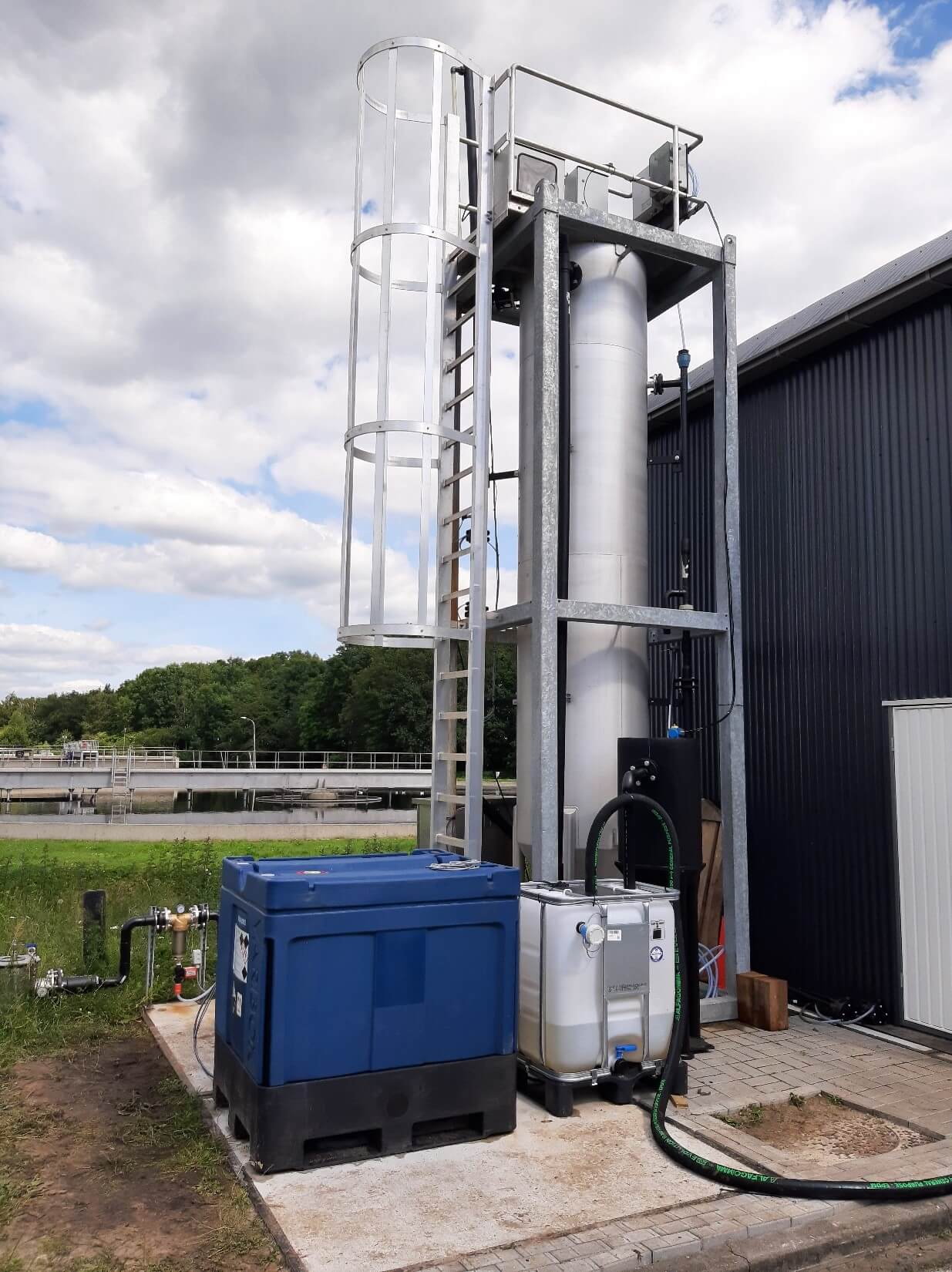New tertiary process to remove micropollutants and phosphate from municipal treated wastewater tested at WwTW Emmen
A pilot plant has been started at the waste water treatment plant of Emmen, Waterschap Vechtstromen. This pilot study, called Bio-GAK, aims to find an affordable and sustainable solution for removing micropollutants from treated wastewater before the water is discharged into surface water. This method removes both medicine residues and phosphate.
Bio-GAK pilot
The purification technique applied is using granular activated carbon filter media. The filter bed is aerated to stimulate biological conversion within the filter bed. Hence the regeneration frequency of the carbon filter may be extended.
The Bio-GAK process uses the continuous filtration technology. This means that the filter is continuously rinsed during the purification process. The technique also ensures that phosphate is removed by using small dosage of chemicals in the feed pipeline to the filter.
Contribution to achieving KRW targets
The aim of the KRW (Kaderrichtlijn Water) is that all surface water bodies in Europe will be clean and healthy by 2027 at the latest. One of the measures that the water boards must take to contribute to achieving these goals is the further removal of phosphate. With this Bio-GAK pilot, two purification techniques are combined and both medicine residues and phosphate are removed.
Execution of pilot research
The Bio-GAK pilot study was initiated by Brightwork and is being carried out by NieuWater, RWB and Waterboard Vechtstromen. The research is being carried out in the context of the Innovation Program Micropollutants from WWTP wastewater of STOWA and the Ministry of Infrastructure and Water Management. STOWA and the Ministry are financially supporting this program to make this pilot possible. The waterboards Rijn & IJssel, Vallei & Veluwe, Drents Overijsselse Delta and Waterschapsbedrijf Limburg are also participating. Also and at the same time Aquafin (Belgium) is conducting a comparative study at WWTP Aartselaar.
Results
The results of the pilot study will be reported at the end of 2023. If the results of the research are in line with expectations, then this pilot will be a good step towards a practical method for removing phosphate and medicine residues which can be applied on a large scale.
If you are interested in this subject, please contact us for further information.

